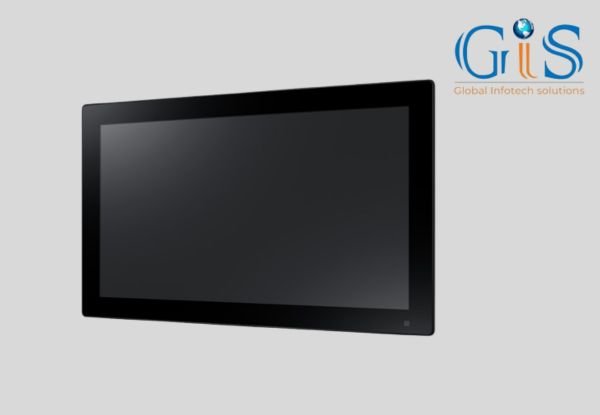1. Introduction:
Panel PCs, or panel-mounted personal computers, represent a critical advancement in the realm of industrial and commercial technology. Characterized by their compact design and integration of a touch-screen interface, these devices blend powerful computing capabilities with user-friendly operation.
In recent years, the Axiomtek panel PC, has gained traction in various industries, transforming how businesses operate for the newbies to know! Their growing presence across various industries underscores a significant shift towards more efficient and responsive systems. In manufacturing, Panel PCs enhance automation and streamline operations, while in retail, they transform customer interaction and inventory management,
2. Understanding Panel PCs:
Panel PCs are integrated computing devices that combine a display screen and computer components into a single unit. Characterized by their touchscreen capability, they facilitate user interaction through intuitive interfaces. Their rugged design enables resistance to harsh environments, making them ideal for industrial applications. Unlike traditional PCs, which typically consist of separate monitor and CPU components, Panel PCs are streamlined for space efficiency and ease of installation. Their versatility allows for deployment in various settings, including manufacturing, healthcare, and retail, while their scalability ensures that these devices can be tailored to meet specific operational needs. Unlike traditional computers, devices like the Advantech panel PCs are designed to withstand harsh environments, making them ideal for both industrial and retail use.
3. Role of Panel PCs in Manufacturing:
Panel PCs play a pivotal role in modern manufacturing, particularly in the realms of automation, quality control, and worker efficiency. These versatile devices are integral to monitoring and controlling production lines, facilitating real-time data monitoring that optimizes production efficiency. By providing immediate access to operational metrics, Panel PCs enable manufacturers to make informed decisions swiftly, thus enhancing overall productivity. This capability allows for effective defect detection, ensuring that products meet stringent quality standards before reaching the market. The ability to analyze data in real time significantly reduces the likelihood of errors, thereby maintaining high-quality output.
4. Impact of Panel PCs in Retail:
Panel PCs have revolutionized the retail landscape by significantly enhancing customer experience and operational efficiency. Through self-service kiosks and digital displays, these devices engage customers more effectively. For instance, interactive product displays allow shoppers to explore features and prices at their convenience, while integrated payment solutions streamline the checkout process, reducing wait times and improving satisfaction. In addition to enhancing customer engagement, Panel PCs play a crucial role in inventory management. Retailers utilize these systems to monitor stock levels in real time, track shipments, and facilitate efficient restocking. This capability minimizes the risk of stockouts and overstock situations, ultimately leading to improved profitability.
5. Benefits of Panel PCs for Both Industries:
Panel PCs have emerged as a pivotal technology across various industries, particularly in manufacturing and retail, owing to their numerous benefits. One of the most significant advantages is their durability and reliability. Designed with rugged constructions, panel PCs can withstand harsh conditions such as extreme temperatures, dust, and moisture, making them ideal for demanding manufacturing environments and bustling retail settings.
Moreover, the compact, all-in-one design of panel PCs effectively addresses the challenge of limited space. In environments where every square inch counts, such as small retail stores or crowded factory floors, their space-saving architecture allows for efficient use without compromising functionality.
6. Challenges of Implementing Panel PCs:
The implementation of Panel PCs presents several challenges that organizations must navigate. Firstly, the initial cost of acquiring Panel PCs often exceeds that of traditional systems, necessitating a significant capital investment. This financial burden can deter organizations, particularly those with limited budgets. Secondly, the adaptation of staff to new technology poses a considerable hurdle. Employees accustomed to traditional setups may resist the transition, leading to potential disruptions in workflow and productivity during the adjustment period. Lastly, the ongoing maintenance and upgrades of Panel PCs require diligent management.
7. Future Trends in Panel PCs:
The adoption of Panel PCs presents several challenges, notably the initial cost, adaptation issues, and maintenance demands. Firstly, the upfront investment required for Panel PCs often exceeds that of traditional systems. This higher cost can deter organizations, especially small to medium enterprises, from making the transition. Additionally, staff adaptation poses a significant hurdle; employees accustomed to traditional setups may resist change, necessitating comprehensive training programs to facilitate a smoother transition. Timely software updates and hardware servicing are crucial, yet they can be overlooked in fast-paced environments, potentially leading to operational disruptions.
8. Conclusion:
In conclusion, Panel PCs are revolutionizing the landscapes of both manufacturing and retail by enhancing operational efficiency and streamlining processes. Their integration facilitates real-time data access and improves user interaction, ultimately leading to increased productivity. As technology advances, the potential for Panel PCs to further innovate these sectors is immense.

